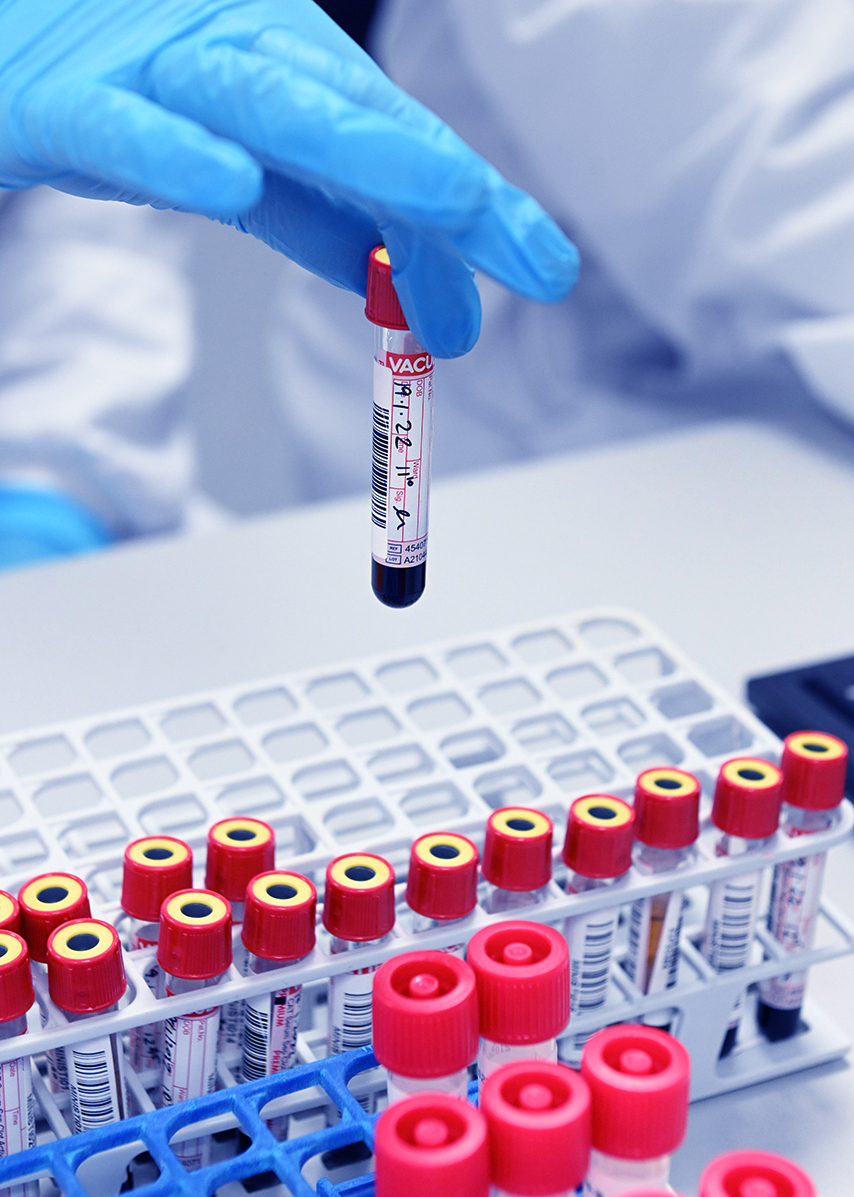One of the most common causes of very elevated ALT levels is due to acute hepatitis, most commonly viral hepatitis. It often increases before and peaks near the onset of jaundice in viral hepatitis. Levels can remain raised for 1 – 2 months but can take longer to return to baseline, up to 3 – 6 months.
Alanine Transferase (ALT)

Alanine Transferase (ALT)
Alanine Transferase (ALT) is an enzyme which is predominantly hepatic in origin. Whilst changes in serum level can often occur with AST, ALT is much more specific for liver and indicates possible hepatocyte injury. Alanine Transferase (ALT) is usually one of a group of tests used to investigate the health of the liver.
ALT concentrations can fluctuate with chronic hepatitis, not all patients will have a raised level. Moderately elevated levels can occur with high alcohol consumption, in diabetic patients, with hyperlipidaemia all of which can cause fatty liver disease. Patients with cirrhosis, non-alcoholic steatohepatitis, cholestatic liver disease, fatty liver and hepatic tumours typically have a slightly raised ALT. Other causes include haemochromatosis, autoimmune hepatitis, primary biliary cirrhosis and thyroid disorders.
Analysing the relationship between AST and ALT, (AST: ALT ratio) is often useful; it can be suggestive of certain conditions as there is considerable overlap. However, it is not exclusive and only serves as an aid to clinical decision-making. If the AST:ALT ratio is greater than two, it is more suggestive of alcoholic liver disease. In contrast, viral hepatitis causes ALT to rise more than AST, and the ratio is usually <1, particularly true of hepatitis C. In Wilson’s disease can cause the AST/ALT ratio to exceed 4.
Transaminases 2-5 times the upper limit of normal are often seen in chronic viral hepatitis and non-alcohol steatohepatitis (NASH). Transaminases are rarely > 10 times the upper limit of normal in uncomplicated alcoholic hepatitis. Transaminases > 20 times can indicate acute viral infection, ischaemic hepatitis, drug or paracetamol toxicity.
Case Study
Delivering True Innovation
Our Services




5mL venous serum or plasma
Enfer Medical
Tests/Assays
Enfer Medical offers Tris buffer without P5P technology for the quantitative assay for Alanine transferase (ALT). This test is CE-IVD certified.


Patient
Request Form
For clients using the Enfer Medical Client Portal, the Enfer Medical Patient Request Form (PRF) will be generated when you have completed your “Test Request” within the portal linked below.
Please note that samples suspected of containing high risk pathogens such as Mycobacterium tuberculosis should be clearly identified on the form and packed separately from other samples.



Results are available next working day.
This assay is available seven days a week.
Packaging
The packaging/preparation of samples for delivery to the laboratory are required to be in adherence to all national regulations for the safe transport of biological materials. HSE guidance can be reviewed HERE.
There are specific packaging instructions and labelling requirements requiring triple packaging including:
- Primary leak-proof container – tube or vial containing the sample.
- Secondary watertight container, with absorbent material, intended to protect the primary container.
- Outer container protects the secondary container.
- Patient Request forms must be placed between the secondary container and the outer shipping container.
Further information on the packaging/preparation of samples for delivery to the laboratory is contained within the Enfer Medical Laboratory User Manual which clients are provided with.


Storage & Stability
Specimens must be tested within 3 days of collection and stored at 2-8°C.


Samples
In addition to the packaging of samples, the transport/delivery of clinical samples to the laboratory is required to be in adherence to all national regulations for the safe transport of biological materials. Enfer Medical provides a fully compliant logistics service, aligned with clients’ testing requirements.
Prompt transport of specimens:
To ensure prompt testing of samples and release of results within the published test turnaround times, samples should arrive to the laboratory by 18:00. Test turnaround time is measured from receipt of the sample at the laboratory until the time the authorised results are reported to users.
of Samples
In rare cases specimens may not be suitable for testing on arrival to the laboratory. In that case the sample will be rejected at the receipt stage and the service user will be notified immediately and an explanation as to why the sample could not be processed will be provided. Reasons why samples cannot be processed include but are not limited to:
- Samples received beyond the stability limits and/or not at the correct temperature indicated for each test.
- Incorrect sample type received.
- Leaking samples, sample not received or sample insufficient for analysis as stated below within sample requirements.
- Non-compliant samples or request forms i.e. those missing sample date information, missing sample test request and/or missing sample site/type information.
- Samples received without the necessary patient identifiers.
Our Services




Quantitative results for Alanine Transferase (ALT) are reported in numeric value in U/L. Please contact us for more information on the reference ranges used at Enfer Medical.
Critical results are communicated in accordance with the Communication of critical results for patients in the community- national laboratory handbook CSP041/2019
Accessing
Your Results
Following receipt at the Laboratory, results should be available on the next working day and will be reported to the referring clinician via the Enfer Medical Client Portal or in a format agreed with clients.
Established clients can login to the portal using the link above.




